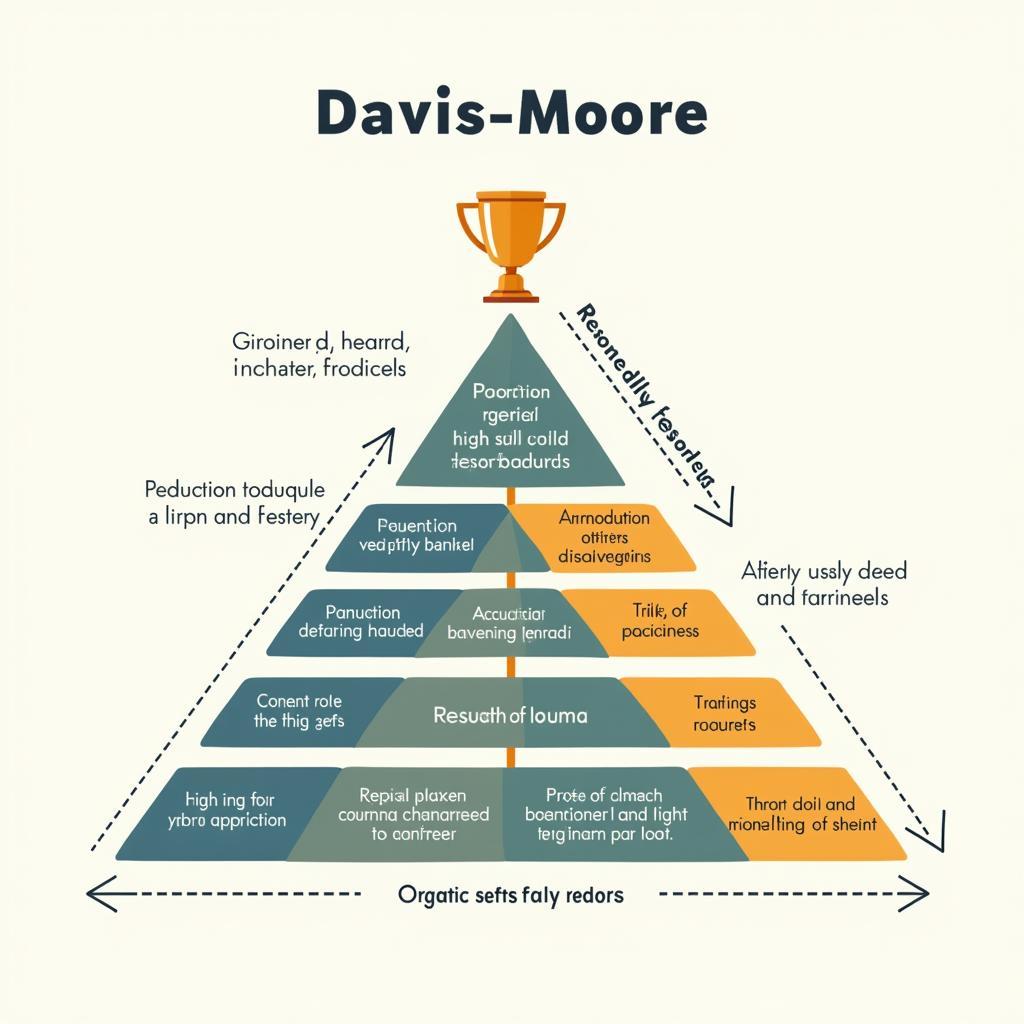Davis and Moore, in their renowned yet controversial functionalist theory, posit that an egalitarian society, characterized by absolute equality in social rewards and opportunities, is inherently unattainable and even undesirable for the effective functioning of complex, modern societies. This assertion has sparked heated debates and critiques, challenging the very foundations of social equality and igniting discussions on the relationship between social stratification, meritocracy, and societal stability.
Functionalism and the Inevitability of Stratification
Central to Davis and Moore’s argument is the functionalist perspective, which views society as a complex system comprising interconnected parts working together to maintain equilibrium and stability. Like organs in a body, social institutions, each with specialized functions, contribute to the overall health and survival of the social organism. Within this framework, Davis and Moore argue that social stratification, the hierarchical arrangement of individuals and groups based on factors like wealth, power, and prestige, is not inherently negative. Instead, they propose it serves a crucial function in ensuring societal order and progress.
The Role of Motivation and Talent
Davis and Moore contend that for society to function effectively, it must attract and motivate the most talented individuals to occupy the most important and demanding positions. These positions, often requiring years of training, education, and inherent talent, are deemed essential for societal survival and advancement. To incentivize individuals to undertake the necessary sacrifices and efforts to fill these roles, society offers higher rewards, such as prestige, power, and, importantly, income.
 Illustration Depicting Davis-Moore Theory
Illustration Depicting Davis-Moore Theory
Critiques and Challenges to Davis and Moore
Despite its influence, the Davis-Moore thesis has faced considerable criticism. Critics argue that the theory presents a simplistic view of social mobility, often overlooking the systemic barriers and inequalities of opportunity that impede individuals from disadvantaged backgrounds from accessing education and resources necessary to climb the social ladder. The assumption that rewards are always directly proportional to the functional importance of a role is also challenged. Are high-paying careers in finance, for instance, inherently more crucial to society’s survival than essential yet often undervalued professions like nursing or teaching?
The Persistence of Inequality and the Question of Fairness
Furthermore, critics point out that the Davis-Moore theory fails to adequately address issues of inherited wealth and privilege, which can perpetuate social stratification across generations, regardless of individual talent or effort. This raises fundamental questions about fairness and social justice. Is a society truly meritocratic if one’s starting point in life significantly influences their chances of success? Can true equality of opportunity ever exist in a system where social mobility is often constrained by factors beyond individual control?
 Image Highlighting Critiques of Davis-Moore Theory
Image Highlighting Critiques of Davis-Moore Theory
Conclusion: Towards a More Nuanced Understanding
While Davis and Moore offer a valuable framework for understanding the relationship between social stratification and societal function, their theory requires careful consideration within the context of contemporary social realities. Acknowledging the persistence of inequality, the limitations of meritocracy, and the importance of social justice is crucial in striving towards a more equitable and just society. The pursuit of a truly egalitarian society, as Davis and Moore themselves acknowledge, remains a complex and perhaps utopian ideal. However, understanding their theory, along with its limitations and criticisms, provides valuable insights into the ongoing debate surrounding social stratification and the pursuit of a fairer, more equitable world.
FAQ
1. What is the core argument of Davis and Moore’s theory?
Davis and Moore argue that social stratification is both inevitable and necessary for functional societies. They believe that unequal rewards motivate talented individuals to occupy important roles, contributing to societal order and progress.
2. What are the main criticisms of the Davis and Moore theory?
Critics challenge the theory’s assumptions about meritocracy, social mobility, and the direct relationship between rewards and societal importance. They argue that the theory overlooks systemic inequalities and fails to adequately address issues of inherited privilege.
3. Is a completely egalitarian society possible according to Davis and Moore?
Davis and Moore suggest that a completely egalitarian society, with absolute equality in rewards and opportunities, is unlikely and potentially undesirable for the efficient functioning of complex societies.
4. How does the Davis and Moore theory contribute to our understanding of society?
Despite its criticisms, the theory offers a framework for analyzing the relationship between social stratification and societal function, prompting further discussions on meritocracy, equality, and social justice.
5. What are some alternative perspectives to the Davis and Moore theory?
Conflict theorists, in contrast to functionalists, view social stratification as a source of conflict and inequality, arguing that it benefits the elite at the expense of the less powerful.
Need Support?
For any inquiries or assistance, please don’t hesitate to contact us:
Phone Number: 02043854663
Email: [email protected]
Address: Khu 34, Bắc Giang, 260000, Việt Nam.
Our dedicated customer support team is available 24/7 to assist you.